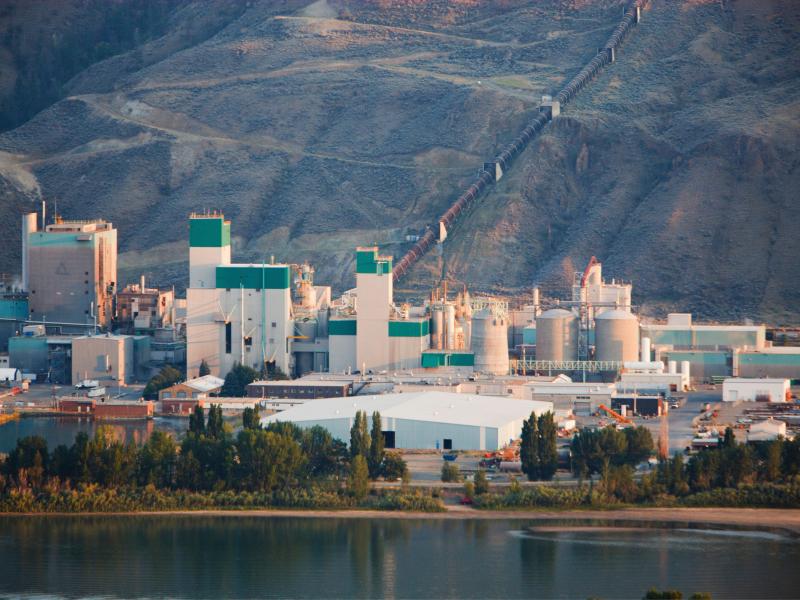Recent Articles
Companies not yet meeting CA100+ net-zero targets
Companies not yet meeting CA100+ net-zero targets
Climate Action 100+ (CA100+) released its first assessments of the world’s largest greenhouse emitting companies, including six Canadian businesses, and not one performed at a high level on all indicators. CA100+ represents more than $54 trillion from a coalition of over 570 investors.
Unilever sets out net-zero plans for shareholder vote
Unilever has become one of the first multinational companies in the world to publish a corporate strategy for achieving net-zero emissions across its entire supply chain by 2039, for oversight by its shareholders, as it prepares for its AGM in May.
Carbon pricing is constitutional Supreme Court rules
• Globe and Mail • Toronto Star
The Supreme Court ruled on Thursday that Ottawa has the authority to impose a minimum price on greenhouse gas emissions across the country. The 6-3 ruling on the climate-change law has wide implications for business, industry, and consumers.
Banff district heating system uses wood waste as fuel
The Town of Banff is taking a step to becoming a more sustainable community by converting mixed wood waste feedstock into clean heating fuel.
A green bond to protect forests for drinking water
Central Arkansas Water partnered with Encourage Capital and the World Resource Institute to create the first certified green bond to acquire forests for watershed protection. The $31.8 million bond allows CAW to borrow money from investors and pay them back later.
IWBI enrolls one billion square feet into WELL rating
The International WELL Building Institute (IWBI), an authority on how to use buildings to advance the health and well-being of the people inside, has crossed the one billion square foot mark of spaces enrolled in the WELL Health-Safety Rating.
Alberta to lead Canadian growth in renewables
Alberta, Canada’s biggest oil-producing province, is expected to see the fastest growth in renewable energy capacity between 2018 and 2023, the Canada Energy Regulator forecasts in a Tuesday report, as new wind and solar projects help replace coal-fired electricity.
Wind power growth must triple by 2030 to achieve net-zero
Last year was the best ever for the global wind industry with 93 GW of new capacity installed – a 53 per cent year-on-year increase – but a report by the Global Wind Energy Council (GWEC) warns it’s not sufficient to achieve net-zero by 2050.
HNRG expands natural climate solutions team
Hancock Natural Resource Group (HNRG), a company of Manulife Investment Management, announced that Eric Cooperström has joined the firm as managing director, impact investing and natural climate solutions, responsible for enhancing sustainability and responsible investing capabilities.
General Motors to reduce water intensity of operations
General Motors plans to reduce water intensity of its operations by 35 per cent by 2035 compared to a 2010 baseline by focusing on a handful of initiatives. One example is the San Luis Potosí Assembly plant in Mexico’s a zero-liquid discharge system.
Offshore wind can meet 90% of 2050 U.S. electricity demand
Offshore wind has the potential to deliver 90 per cent of America’s projected 2050 electricity demand. This finding comes from Offshore Wind for America, a new report that also documents the status of existing projects and technological advances.
Hydrogen-powered cars are going mainstream
Hydrogen cars weigh less, travel for up to 500 kilometres before refuelling, which only takes minutes, and the Canadian Hydrogen and Fuel Cell Association notes their environmental footprint of 2.7 grams of carbon dioxide per kilometre tops the 20.9 grams for electric cars.
Manulife US REIT signs first sustainability-linked loan
Manulife US REIT has obtained a US$250 million unsecured sustainability-linked loan from DBS and OCBC Bank, with both banks acting as sustainability advisers. This is MUST’s first sustainability-linked loan where interest rate reductions are linked to pre-determined sustainability performance targets.
Power struggle: The looming high-tech battery crisis
• GreenBiz • A Circular Economy for Lithium-Ion Batteries
The National Renewable Energy Laboratory is a highly regarded government agency accustomed to toiling in relative obscurity. But its latest report – A Circular Economy for Lithium-Ion Batteries Used in Mobile and Stationary Energy Storage – should prompt everyone to take notice.
Momentum builds for U.S. electric vehicle transition
• Yale 360
Last month’s failure of the Texas electric grid, just weeks after General Motors’ pledge to make only electric vehicles by 2035, highlights the daunting task the U.S. faces as it takes the first steps toward weaning its economy off fossil fuels.
PG&E to help build community microgrids in California
• Microgrid Knowledge • Community Microgrid Enablement Program Resilience Planning Guide
California Public Utilities Commission approved Pacific Gas and Electric’s (PG&E) plan for helping community microgrids to protect critical facilities when there are widespread power outages. The Community Microgrid Enablement Program is an effort to support the commercialization of microgrids.
Earth Hour to spotlight hope for wildlife, climate
• World Wildlife Fund • World Wildlife Fund
On Saturday, March 27 at 8:30 p.m. local time, Earth Hour, one of the largest global grassroots movements for the environment, will bring together millions around the world virtually to demand action on biodiversity loss and climate change.
Aviation plots a more sustainable course
• GreenBiz
In 2020, the pandemic led to a near-total halt in air travel, with airlines hemorrhaging billions of dollars and shedding hundreds of thousands of jobs. People also didn’t want to spend hours inside a closed container with other humans.
Is flying or driving greener?
Environmental Protection Agency’s Inventory of U.S. Greenhouse Gas Emissions and Sinks, a 2019 report spanning three decades, revealed transportation — flying, driving, rail, commercial shipping, etc. — is responsible for a larger share of domestic greenhouse gas emissions than any other economic sector.
How sustainable are sustainable aviation fuels?
Sustainable Aviation Fuel (SAF) is in the news these days as Bill Gates recently wrote he has filled his private jet with it since 2020, and news of KLM’s use of Neste’s fuel, which is reportedly made from palm oil.
 Industry Events
Industry Events
-
ECO IMPACT 2026
Feb 19 2026
to Feb 20 2026
The Westin Calgary
-
BuildGreen Atlantic
Apr 27 2026
to Apr 28 2026
Halifax, NS
-
The Evergreen Conference
May 06 2026
to May 07 2026
Toronto, ON
-
Building Lasting Change
Jun 17 2026
to Jun 19 2026
Montréal, QC
-
Retrofit Canada Conference
Jun 24 2026
to Jun 25 2026
Halifax Convention Center











